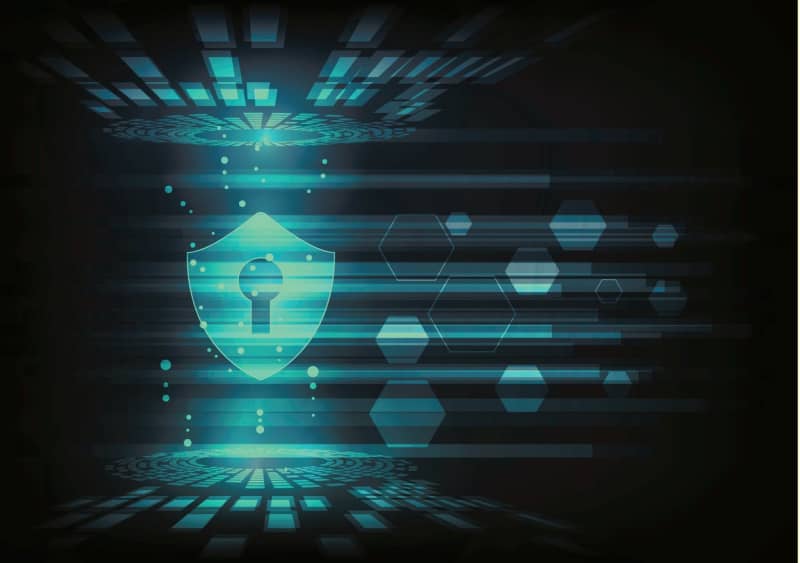In today’s digital world, understanding the different types of cyber security has never been more important. Cyber crime is on the rise, which means that investing in managed cyber security services is no longer just a recommendation – it’s a necessity.
Ensuring your organisation has the tools needed to deal with cyber criminals is paramount to your success – regardless of whether you run a small business or an enterprise. With so many different types of cyber security out there at the moment, it can be difficult for businesses to know which direction to take. That’s why we’ve created this blog.
As experts in the world of technology, our team has the knowledge needed to help you make the right decision for your needs. If you’d like to integrate our managed cyber security services into your business, we’ll be happy to help – please make an enquiry today.
What Are the Main Types of Cyber Security?
Cyber security threats are more common than ever. In their Cyber Security Breaches Survey 2024, the British government estimated that half of all businesses and a third of charity organisations had faced some form of cyber crime in the last 12 months. This number is much higher when considering medium businesses (70%) and large businesses (74%), with the most common form of security threat coming in the form of phishing attacks. However, small businesses may still find themselves threatened by cyber criminals.
These statistics show that it’s never been more important to ensure you have secure internet access, making understanding the main types of cyber security essential for protecting sensitive data. With so many different threat actors out there at the moment, the broad range of practices and technologies contained within the cyber security umbrella are incredibly important – for both businesses and individuals.
Join us as we explore the main types of cyber security, aiming to give you the tools needed to successfully protect your data online.
Network Security
Network security is a term used to refer to security measures created specifically for a network. It plays a key role in safeguarding the integrity, confidentiality, and availability of data within an organisation’s network.
Network security has a fairly broad remit, including important measures such as:
- Intrusion detection systems (IDS)
- Encryption protocols
- Access controls
- Regular system updates
- Dedicated virtual private networks (VPNs)
The main aim of network security measures is to prevent cyber threats and cyber security challenges that can compromise the safety and integrity of a network, such as unauthorised access and data breaches.
Endpoint Security
Endpoint security instead focuses on the security of individual devices that connect to a network (such as computers and smartphones), working in tandem with network security to provide comprehensive cyber security protection. These devices often provide an opening for cyber security breaches, so it’s important to ensure rigid security testing is carried out on all endpoint devices.
Some of the main tools and strategies used for endpoint security include:
- Intrusion detection systems
- Antivirus software
- Device encryption tools
- Remote monitoring and management
- Other cyber crime prevention systems
Endpoint security measures enable organisations to defend against malware, phishing attacks and other possible threats, preventing malicious activity from spreading from the device to the entire network. By securing your endpoint security, you can ensure network security across your entire infrastructure.
Mobile Security
Mobile security somewhat links into the previous point about endpoint security, but it’s specifically dedicated to protecting mobile devices from cyber threats. As smartphones and tablets have become so vital to our daily lives, this form of IT security has become increasingly important for business owners.
Common mobile technology solutions include:
- Pin codes and biometric features
- Device encryption technology
- Mobile device management (MDM) solutions
- The use of secure mobile applications
- App permissions
- Regular software updates
Mobile devices have become more integral to business operations in recent years, so securing them should be a major priority for modern organisations. Practising good mobile security hygiene is a crucial part of safeguarding both personal and private data, particularly as threats continue to evolve.
Information Security
Information security measures focus on protecting sensitive data, business information, and digital assets from cyber breaches and threats – regardless of whether the data is currently being used.
There is a wide range of strategies involved with information security:
- Secure data storage
- Access control methods
- Data encryption mechanisms
- Robust firewalls
- Continuous monitoring of threats
Information security tactics ensure important data remains confidential and intact, helping businesses to maintain privacy and trust within their organisation. Firewalls can also be useful for information security, as well as a number of other forms of cyber security, making them essential tools for any modern business – find out more about firewalls here.
Cloud Security
Cloud security techniques focus solely on cyber security threats on cloud services and solutions, protecting data, applications, and any infrastructure hosted within the cloud from various cyber threats. Many cloud-based providers (such as Microsoft Azure and Google Cloud) provide robust security measures as part of their overall package, but it’s still a good idea to invest in your own cyber security detection tools to prevent unauthorised people accessing your data.
Common cloud security tactics include:
- Encryption controls
- Identity and access management (IAM) measures
- Secure configuration practices
- Regular cyber security risk assessments
- Ongoing monitoring of potential threats
Another important factor linked to effective cloud security measures is that they also ensure your cloud applications remain safe and compliant with current regulatory standards.
Identity & Access Management (IAM)
Identity and Access Management (IAM) is a host of technologies and policies that revolves around the right individuals having appropriate access to data and resources. It covers the secure management of digital identities, controlling resource access within your businesses IT network. Essentially, IAM programmes ensure that only authorised people can access specific systems and applications, preserving data security along the way.
Common IAM measures include:
- Passwords and biometrics
- Two-factor authentication/Multi-factor authentication (MFA) methods
- User control permissions
- Identity lifecycle management
- Regular security audits, assessments, and compliance checks
- Other user authorisation mechanisms
By integrating IAM techniques into your business, you can grant and revoke access to employees when needed, enhancing both security and efficiency. Many cyber security measures tend to focus on external risks, but with IAM measures, you are also protected against insider threats.
IoT (Internet of Things) Security
IoT (Internet of Things) security is similar in some ways to endpoint security, focusing on protecting the diverse range of IoT devices on the market at the moment. IoT devices include anything that connects to a network to function – not only does it cover smartphones and tablets, but it also revolves around items such as smart homes and fitness trackers.
As these devices are relatively new to the market, they can post unique security challenges, although there are many techniques you can use to increase security among your IoT items:
- Device authentication
- Data encryption measures and integrity checks
- Continuous monitoring and regular software updates
- Secure communication protocols
- Regular vulnerability assessments and penetration testing
- Access control mechanisms
It’s expected that IoT technology will continue to rise in popularity over the next few decades, entering every aspect of our public and private lives. This means that stringent IoT cyber security practices are essential for protecting both business and personal privacy, as well as sensitive data.
Secure Your Business with M247
Understanding the different types of cyber security is essential for building a robust defence against modern cyber threats. Each form of cyber security addresses unique vulnerabilities – from protecting networks and securing endpoints to safeguarding the cloud and your mobile devices.
Implementing a comprehensive cybersecurity strategy that includes the different types of cyber security detailed above is crucial to your success, but it can be hard to know where to start. At M247, we’re the leading connectivity and cloud services partner for businesses based within the UK. Our trusted Cyber Security Incident Response Team has the tools needed to ensure all your data stays protected, all the time.
Please get in touch if you’d like to find out more about our cyber security solutions.




